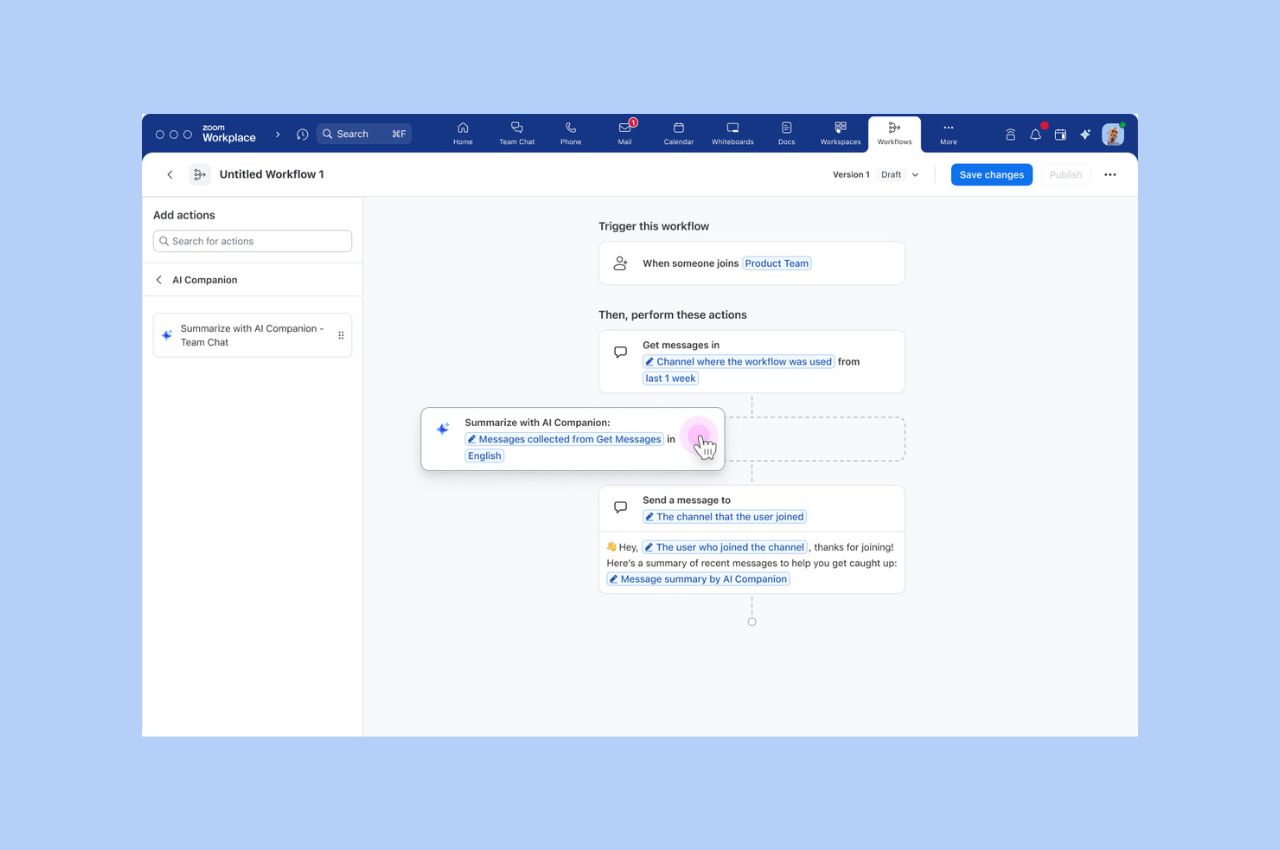
Workflow Automation tips: Save your team hours with automated workflows for common tasks
Zoom Workflow Automation allows you to create automated workflows for common tasks like responding to chat messages, helping your team save time.
Updated on April 21, 2022
Published on November 06, 2014


Everyone loves a good meeting filled with sunflowers, rainbows, dairy products that never spoil, and dental floss that doesn’t jam in your teeth. There’s nothing better than a meeting that’s full of dialogue, proactive thinking, and productive endeavors. This is why you use Zoom. We don't get in the way of your productive meetings. There’s another side to this, though. At some point in your life, you will participate in a meeting so dull, you’ll feel like you're watching paint dry. It’s one thing to attend a meeting like this, but hosting such a meeting can be a major drag on your self-image. You want to have meetings that encourage participation and develop actionable plans. We’ve already spoken about how to engage your participants and keep your meeting from becoming a snore-fest. But there’s more to this than simply creating a snappy environment. You also have to know when it’s appropriate to shrink down or push out the meeting. To do this, you have to first ask yourself some questions:
Zooming should be an actionable process. If you’re going to hold a Zoom meeting in your organization, perhaps it’s best to remember the word “zoom.” Aside from having something important to discuss, you must also make the meeting goal-oriented and “zoom” to that goal. The only exception to this is if you’re having a (very short) meeting just to find out where everyone’s at in their tasks. Whether you’re programming a module or discussing the moral implications within Of Mice and Men, you need to have a goal that must be accomplished by the end of the meeting. This establishes a horse-blinder mindset that puts your sights on a particular target. It’s also how the most collaborative and productive meetings are set up. But most importantly, if you want a video conferencing platform for those purposeful meetings and haven’t tried Zoom out yet, sign up now for a free account!